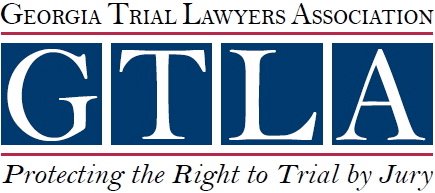Welcome to Princenthal, May & Wilson’s blog, where we believe it is important to empower our clients and community with the knowledge they need to navigate the legal system.
Procedures like depositions may seem daunting anyone would be nervous in a room full of attorneys, much less with a lawsuit on the line. In the realm of personal injury law, depositions play a pivotal role in gathering evidence and shaping the trajectory of a case. But what is a deposition?
What is a Deposition?
A deposition is a formal legal proceeding where witnesses including parties involved in the lawsuit and other relevant individuals provide sworn testimony under oath. The testimony is typically recorded by a court reporter and may be conducted in person or remotely, such as through video conferencing.
What is a Depositions’ Purpose in Personal Injury Cases?
Depositions serve several crucial purposes in personal injury lawsuits:
Gathering Evidence
Depositions allow both parties to gather evidence and information relevant to the case. Witnesses are questioned about their knowledge of the events leading to the injury, their observations, and any other pertinent details that may support or refute the claims being made.
Discovery
Depositions are a key component of the discovery process in litigation. They provide an opportunity for each party to learn about the strengths and weaknesses of the opposing party’s case, assess witness credibility, and identify potential areas of contention.
Preserving Testimony
Deposition testimony serves as a permanent record of witness statements. It can be used to refresh a witness’s memory during trial or to impeach their credibility if their trial testimony differs from their deposition testimony.
Assessing Witness Credibility
Depositions allow attorneys to evaluate the credibility of witnesses, including the plaintiff, defendant, and other key individuals. Attorneys can observe witness demeanor, consistency of testimony, and responsiveness to questioning, which can influence case strategy and settlement negotiations.
What is a Deposition Like?
Before the deposition, the attorney representing the party seeking the testimony (the “examining attorney”) will typically prepare a list of questions to ask the witness. This preparation involves reviewing relevant documents, identifying key issues, and strategizing the line of questioning.
Once both parties have agreed on a date, time, and location for the deposition, a notice of deposition is issued to all parties involved, including the witness and their attorney. The deposition begins with introductory remarks from the examining attorney, who explains the purpose of the deposition and outlines the ground rules for the proceeding. The witness is then sworn in under oath to tell the truth.
The examining attorney proceeds to question the witness, typically starting with background information and then delving into specific details relevant to the case. The questioning may cover a wide range of topics, and the witness is expected to answer truthfully to the best of their knowledge.
Throughout the deposition, attorneys may raise objections to certain questions or lines of questioning. Common objections include relevance, hearsay, and privilege. If an objection is raised, the witness may be instructed not to answer pending a ruling from the court.
Depositions can be lengthy proceedings, so it’s common to take breaks to rest and regroup. These breaks also provide an opportunity for attorneys to confer with their clients and strategize their approach.
Once the examining attorney has finished questioning the witness, the opposing attorney may have an opportunity to ask follow-up questions, known as redirect examination. Finally, the examining attorney may conclude with any final remarks or clarifications.
Finally, a court reporter is present throughout the deposition to transcribe the proceedings verbatim. The transcript serves as an official record of the testimony and may be used as evidence in court.
Key Players at a Deposition
At a deposition, several key players come together to uncover and record pertinent details of a legal case. The witness, who may be a party involved in the lawsuit, an expert, or someone with factual knowledge, is the primary focus, providing testimony based on their knowledge relevant to the case. The examining attorney, representing the party who organized the deposition, takes the lead in questioning the witness to elicit essential testimony. In contrast, the opposing attorney, representing the other party, has the opportunity to cross-examine the witness and may raise objections during the session. A court reporter plays a critical role by recording every word spoken verbatim, ensuring an accurate record of the proceedings. Sometimes, the witness’s own attorney might also be present, offering legal advice and safeguarding the witness’s rights throughout the deposition.
The deposition itself unfolds through a series of probing questions aimed at building a comprehensive record. It often begins with background questions that establish the witness’s identity, occupation, and any experiences relevant to the case. These introductory queries set the stage for more detailed inquiries. Factual questions delve into specific events or actions pertinent to the case, aiming to uncover details that could support or challenge the claims at stake. Depending on the witness’s role and expertise, they might also face opinion questions which solicit their views on aspects such as the causes of an incident or the reasonableness of certain actions.
Further questioning may explore the witness’s memory and perception, focusing on what they recall seeing, hearing, or experiencing. This line of inquiry is crucial for clarifying any inconsistencies and gauging the reliability of the witness’s account. If the witness is an expert, the questioning can become highly technical, involving knowledge and hypothetical scenarios that test their expertise and credibility.
Lastly, attorneys might introduce documentary evidence during the deposition, asking the witness to confirm or elucidate the contents of documents like medical records or accident reports. These questions not only help authenticate documents but also potentially reveal additional insights, contributing to the broader understanding of the case. Each question and answer add layers to the gathered information, piecing together a narrative that could be pivotal when the case goes to trial.
Representative Cases
How an Attorney Can Help Prepare for a Deposition
An attorney plays a crucial role in preparing you for a deposition by guiding you through the entire process and ensuring you understand its significance in your case. They will explain each step, helping you to navigate the expectations and appropriate behavior during the deposition.
Your lawyer will meticulously review all the facts of your case, along with any pertinent documents or evidence, to ensure you are well-prepared for the types of questions that might arise. This preparation includes formulating clear, honest answers to anticipated questions.
Mock depositions are an essential part of the preparation process. Your attorney will create a simulated deposition environment, where you can engage in role-playing to practice your responses. This exercise helps hone your communication skills, allowing you to refine how you answer questions under pressure
Should you have any concerns or uncertainties about the deposition, your attorney is there to resolve them. They can clarify complex legal concepts, procedural nuances, and help reduce any anxiety you might feel, offering support and guidance every step of the way.
Strategically, your attorney will tailor their approach to highlight the strengths and mitigate the weaknesses of your case. They will consider the strategies of the opposing counsel to ensure your testimony effectively contributes to your overall legal strategy.
It’s also vital to maintain a professional demeanor throughout the deposition. Your attorney will advise on body language, tone of voice, and the best ways to handle challenging questions or objections, ensuring you present yourself in the best possible light.
Above all, your attorney’s primary commitment is to protect your rights and interests during the deposition. They will advocate for you, ensuring the fairness of the proceedings and that your testimony is accurately recorded, safeguarding against any improper questioning or adversarial tactics.




Here to Help You
If you are facing a deposition, or believe you are the victim of a personal injury due to someone else’s negligence, contact the offices of Princenthal, May & Wilson today. Our firm is dedicated to advocating for our clients with the passion and professionalism they deserve — from the moment they walk through our door.
Contact our office today and schedule your consultation. Let us advocate for you.
Hiring a Personal Injury Attorney How Long Will a Personal Injury Case Take?Related Videos





